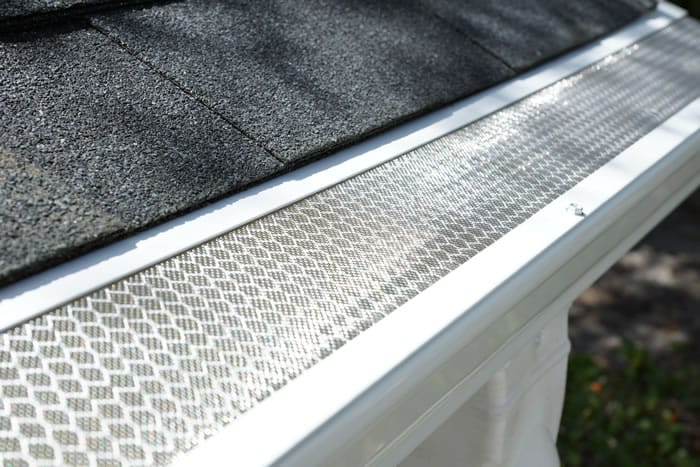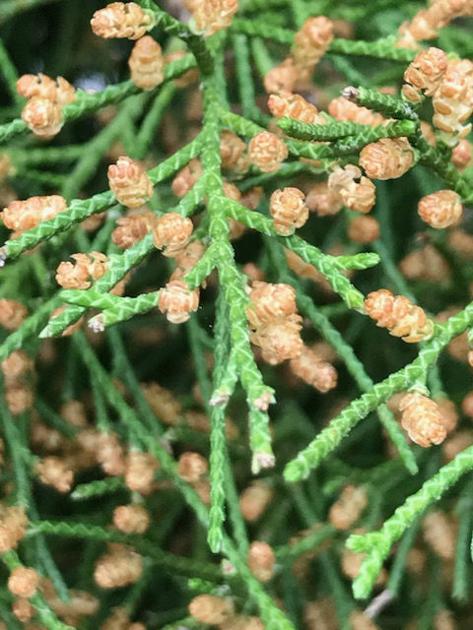You’ll notice more sneezing, a running nose and itchy eyes. Here come seasonal allergies.
This item: Window Screen Filter Prevents Pollen and Dust From Entering Your Home. Set up a giveaway Customers who viewed this item also viewed. Page 1 of 1 Start over Page 1 of 1. This shopping feature will continue to load items. In order to navigate out of this carousel please use your heading shortcut key to navigate to the next or previous. SafeGuard Window Filter Cartridge - Large. Replacement SafeGuard Window Filter Cartridge fits the Safeguard 24-44' Adjustable Window Filter 11' Tall. Do you love keeping your windows open? Now you can enjoy fresh air during the spring and pollen season, without suffering from allergy symptoms. 'Pollen Ban' a hayfever remedy, is a new screening product for windows which helps filter out up to 99% of air borne pollen. The screen kit is supplied with the necessary hook and loop fastener to attach the mesh to the window frame an will cover a window of up to 1.2m X 0.8m. Extensive research has been carried out by ECARF (The European.
For some sufferers, it begins when tree pollen starts to spread, typically in March and April. Others are allergic to the pollen from grass and plants sprouting in May and June. Another culprit is weed pollen in July, August and September.
But before reaching solely for antihistamines, local allergy experts say people can try some easy, preventative steps to get ahead before symptoms do. A good start can be to change when you shower.
“When the pollen is really in the air, taking a brief shower after being outdoors or before bed can help,” said allergist Dr. Steven Kernerman, with Spokane Allergy & Asthma Clinic. “You can imagine if you’ve been outdoors and you’ve got pollen adhered to your face and hair, and it gets on your pillow, then you’re basically breathing that all night.
“Certain times of the day have more allergen in the air, and levels are probably highest in the morning, so if someone had a choice of when to work outdoors, or do physical activity outdoors, probably the afternoon would be a better idea.”
Dr. Dave Stoddard, a rhinologist at Spokane Ear, Nose & Throat, also suggests considering the time of day or if a certain activity like yard maintenance might set off your allergies.
“If you can find somebody else to mow the lawn, or if you know the pollen count is high at the moment, those are the days when you might consider staying indoors more,” Stoddard said. “A lot of weather services will report relative allergen levels and you can check that before you’re planning on going outdoors.”
Here are some other tips to curb seasonal allergies:
Reduce exposure
Consider staying indoors if conditions mean dry, windy periods that blow more pollen around. Conversely, rain helps clear pollen from the air.
Stoddard said wearing a mask can help seasonal allergy sufferers if they are outside for a while.
“If you’re really serious about allergen avoidance and want to avoid medication, then they do make pollen masks you can use while outside gardening, mowing the lawn or doing chores. Far cry 2 mouse not working. Online retailers have these pollen masks, but certainly the standard painting masks also will be helpful.”

If you’re hiking later in the season, steer clear of such weeds as Russian thistle and knapweed.
“Those tend to be really strong in weed pollen that people have issues with,” Kernerman said.
Seasonal allergies might go in waves of worsening and getting better as different plants release pollen, and then conditions improve in between, he said. “That can be confusing to people. They think they are fine and then they feel symptoms again.”
Filter vehicle cabins
Drive with vehicle windows closed, air conditioning on and indoor air recirculating.
“When you’re in the car driving, it can help to keep the windows shut, have the air conditioner on and recirculating,” Kernerman said. “But the air has to be on recirculating, and the air conditioning needs to be running.
“Most cars within the last five years usually have cabin filters that can be changed out, so it’s making sure they’re clean and once in a while changing them.”
Keep home air clean
Both Stoddard and Kernerman recommend regular replacement of filters for residential furnace and air conditioning units.
Allergy sufferers can close windows and use that air conditioning system if they have it.
“If one is highly pollen allergic and if you’re staying indoors, having windows closed and the air conditioner on and making sure you have good filters on the system can help decrease the allergen load indoors,” Kernerman said.
Think also about how to prevent bringing pollen indoors.
“If you’re doing your laundry and hanging things outside, then you’re just bringing the allergens back in,” added Stoddard.
Specialized bedding protective covers might help, he said.
“A lot of people find when they wake up in the morning, they are more symptomatic, so they might be more allergic to dust mites or feathers,” Stoddard said. “So paying attention to the timetable of symptoms can point out what sets you off.”
Even if showering later in the day, it can help to wash bed linens more often in hot water to remove as much pollen as possible.
Stoddard said some people opt for high-efficiency particulate air units for home spaces. Dust might be a culprit, too.
“Consider a good spring cleaning. If you’re dust allergic, a person might want to contemplate a switch from older carpet to hardwoods that are less likely to hold the dust.”
Don’t blame the pines
There are plenty of trees in the Inland Northwest that cause allergy issues. Kernerman said the top offenders include alder, birch, cottonwood and sycamore.

But it happens each year. People blame the bright Ponderosa pine pollen dusted over porches and driveways. Actually, it’s a benign pollen for most individuals, Kernerman said.
“The good news about Ponderosa pine is that although it produces a pollen, it doesn’t seem to be a pollen that’s very allergenic, which is a major mercy because sometime in May you’ll see this yellow-green pollen over everything.
“It’s just when we’re peaking with the grass pollen. People experience symptoms of seasonal allergies and they’ll see the yellow pine pollen and assume cause and effect. For the vast majority, it’s not the pine pollen; it’s the grass pollen that they can’t see.”
Reach for some relief
Many seasonal allergy sufferers take an antihistamine, Kernerman said. Popular brand-name allergy medicines are also available in generic form, and that works just as well, both he and Stoddard said. They include Benadryl, Claritin, Zyrtec and Allegra.
Some allergy sufferers use corticosteroid nasal sprays, such as Flonase and Nasacort. Decongestants such as Sudafed can help for a short time, Stoddard said.
“The thing I always caution people about is that decongestants can be something your body becomes accustomed to, so taking them more than three to five days at a stretch — especially the nasal decongestants like Afrin or Neo-Synephrin — can result in a rebound effect where your symptoms can get worse when you try to stop medications.”
For longer-term use, a nasal spray such as Flonase or Rhinocort can be a better option.
Nitoms Window Screen Filter
Consider other options
“One of the safest things that is kind of all-natural is to rinse out your nose with a saline irrigation, which you can do with distilled or boiled water,” Stoddard said.
In December, news surfaced about a Seattle woman who died from an amoeba infection thought to be from tap water. Experts reported that a rare organism likely entered the woman’s brain after getting injected into her nasal cavity via a neti pot, used to rinse out the sinuses and nasal cavity. They believed she used tap water filtered through a store-bought water filter.
Stoddard, who is aware of that rare case, added that flushing particles out of the nose is safe with a sterilized rinse.
“As long as you use distilled or boiled water, the chances of that happening are essentially zero,” he said.
When all else fails, consider seeing a physician or specialist who can explain allergy shots or drops, he said. The approach exposes your body slowly to an allergen.
Such allergy shots or allergy immunotherapy can help desensitize or build up an immune tolerance to a substance normally causing an allergic reaction.
“It works for about 80 percent of people in rebooting the immune system,” Stoddard said.

- ↑https://www.healthgrades.com/right-care/allergies/12-tips-for-reducing-pollen-exposure
- ↑https://www.healthgrades.com/right-care/allergies/12-tips-for-reducing-pollen-exposure
- ↑https://www.healthgrades.com/right-care/allergies/12-tips-for-reducing-pollen-exposure
- ↑http://www.mayoclinic.org/diseases-conditions/hay-fever/in-depth/seasonal-allergies/art-20048343
- ↑https://www.healthgrades.com/right-care/allergies/12-tips-for-reducing-pollen-exposure
- ↑https://www.healthgrades.com/right-care/allergies/12-tips-for-reducing-pollen-exposure
- ↑https://www.healthgrades.com/right-care/allergies/12-tips-for-reducing-pollen-exposure
- ↑https://www.healthgrades.com/right-care/allergies/12-tips-for-reducing-pollen-exposure
- ↑https://www.healthgrades.com/right-care/allergies/12-tips-for-reducing-pollen-exposure
- ↑https://www.healthgrades.com/right-care/allergies/12-tips-for-reducing-pollen-exposure
- ↑https://www.healthgrades.com/right-care/allergies/12-tips-for-reducing-pollen-exposure
- ↑https://www.healthgrades.com/right-care/allergies/12-tips-for-reducing-pollen-exposure
- ↑http://www.everydayhealth.com/allergy-pictures/easy-allergy-fighting-tricks-you-may-not-have-tried.aspx#02
- ↑https://www.healthgrades.com/right-care/allergies/12-tips-for-reducing-pollen-exposure